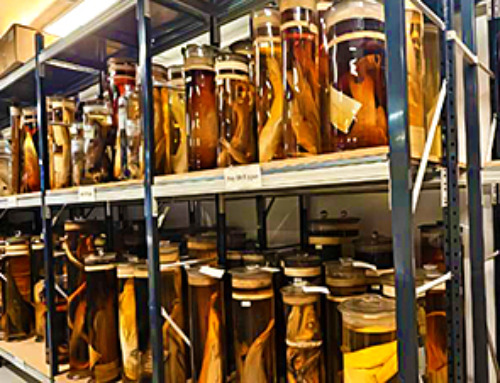AstraZeneca withdraws COVID-19 vaccine: The pharmaceutical giant AstraZeneca’s COVID-19 vaccine is being withdrawn worldwide after the company acknowledged for the first time in court documents that it can cause a rare and dangerous side effect.
AstraZeneca withdraws COVID-19 vaccine: The pharmaceutical giant AstraZeneca’s COVID-19 vaccine is being withdrawn worldwide after the company acknowledged for the first time in court documents that it can cause a rare and dangerous side effect, according to a report in the British Newspaper ‘The Telegraph’, an ANI report read.
AstraZeneca has announced that the vaccine was being removed from markets for commercial reasons. It further said that the vaccine was no longer being made or supplied, having been superseded by updated vaccines that fight new variants.
The application to withdraw the vaccine was made on March 5 and came into effect on May 7. The vaccine can be no longer used in the European Union following the company’s decision to withdraw its “marketing authorisation.”
Similar applications will be submitted in the UK and other nations in the coming months that have given a go-ahead to the vaccine, known as Vaxzevria.
In recent months, Vaxzevria has come under scrutiny over a very rare side effect, which causes blood clots and low blood platelet counts. In court documents, AstraZeneca in the High Court in February admitted that the vaccine “can, in very rare cases, cause TTS”.
TTS which stands for Thrombosis with Thrombocytopenia Syndrome has been associated with at least 81 deaths in the UK and hundreds of serious injuries. More than 50 alleged victims and grieving relatives have filed a lawsuit against AstraZeneca in a High Court case.
AstraZeneca has insisted that the decision to withdraw the vaccine is not related to the case or admission that it can cause TTS and termed the timing a pure coincidence, according to The Telegraph report.
“We are incredibly proud of the role Vaxzevria played in ending the global pandemic. According to independent estimates, over 6.5 million lives were saved in the first year of use alone and over three billion doses were supplied globally. Our efforts have been recognised by governments around the world and are widely regarded as being a critical component of ending the global pandemic,” The Telegraph quoted AstraZeneca as saying.
In a statement, the pharmaceutical giant said, “As multiple, variant Covid-19 vaccines have since been developed, there is a surplus of available updated vaccines”, adding that it has led to a decline in demand for Vaxzevria, which is no longer being manufactured or supplied, The Telegraph reported.
It further announced its decision to initiate the withdrawal of the marketing authorisations for Vaxzevria within Europe. The company said, “We will now work with regulators and our partners to align on a clear path forward to conclude this chapter and significant contribution to the Covid-19 pandemic.”
Last week, AstraZeneca reiterated its commitment to patient safety while emphasising the vaccine’s overall safety profile.
An AstraZeneca spokesperson had stated, “Our sympathy goes out to anyone who has lost loved ones or reported health problems. Patient safety is our highest priority, and regulatory authorities have clear and stringent standards to ensure the safe use of all medicines, including vaccines.”
This comes in the wake of a recent admission by AstraZeneca, the pharmaceutical company, that its Covid vaccine Covishield and Vaxzevria “can, in very rare cases, cause Thrombosis Thrombocytopenia Syndrome (TTS).”
Despite these rare occurrences, the pharmaceutical company maintained that extensive clinical trial data and real-world evidence consistently support the vaccine’s safety and efficacy. Regulatory agencies worldwide continue to assert that the benefits of vaccination outweigh the risks of such extremely rare side effects.
News
Analyzing Darwin’s specimens without opening 200-year-old jars
Scientists have successfully analyzed Charles Darwin's original specimens from his HMS Beagle voyage (1831 to 1836) to the Galapagos Islands. Remarkably, the specimens have been analyzed without opening their 200-year-old preservation jars. Examining 46 [...]
Scientists discover natural ‘brake’ that could stop harmful inflammation
Researchers at University College London (UCL) have uncovered a key mechanism that helps the body switch off inflammation—a breakthrough that could lead to new treatments for chronic diseases affecting millions worldwide. Inflammation is the [...]
A Forgotten Molecule Could Revive Failing Antifungal Drugs and Save Millions of Lives
Scientists have uncovered a way to make existing antifungal drugs work again against deadly, drug-resistant fungi. Fungal infections claim millions of lives worldwide each year, and current medical treatments are failing to keep pace. [...]
Scientists Trap Thyme’s Healing Power in Tiny Capsules
A new micro-encapsulation breakthrough could turn thyme’s powerful health benefits into safer, smarter nanodoses. Thyme extract is often praised for its wide range of health benefits, giving it a reputation as a natural medicinal [...]
Scientists Develop Spray-On Powder That Instantly Seals Life-Threatening Wounds
KAIST scientists have created a fast-acting, stable powder hemostat that stops bleeding in one second and could significantly improve survival in combat and emergency medicine. Severe blood loss remains the primary cause of death from [...]
Oceans Are Struggling To Absorb Carbon As Microplastics Flood Their Waters
New research points to an unexpected way plastic pollution may be influencing Earth’s climate system. A recent study suggests that microscopic plastic pollution is reducing the ocean’s capacity to take in carbon dioxide, a [...]
Molecular Manufacturing: The Future of Nanomedicine – New book from Frank Boehm
This book explores the revolutionary potential of atomically precise manufacturing technologies to transform global healthcare, as well as practically every other sector across society. This forward-thinking volume examines how envisaged Factory@Home systems might enable the cost-effective [...]
New Book! NanoMedical Brain/Cloud Interface – Explorations and Implications
New book from Frank Boehm, NanoappsMedical Inc Founder: This book explores the future hypothetical possibility that the cerebral cortex of the human brain might be seamlessly, safely, and securely connected with the Cloud via [...]
Global Health Care Equivalency in the Age of Nanotechnology, Nanomedicine and Artificial Intelligence
A new book by Frank Boehm, NanoappsMedical Inc. Founder. This groundbreaking volume explores the vision of a Global Health Care Equivalency (GHCE) system powered by artificial intelligence and quantum computing technologies, operating on secure [...]
Miller School Researchers Pioneer Nanovanilloid-Based Brain Cooling for Traumatic Injury
A multidisciplinary team at the University of Miami Miller School of Medicine has developed a breakthrough nanodrug platform that may prove beneficial for rapid, targeted therapeutic hypothermia after traumatic brain injury (TBI). Their work, published in ACS [...]
COVID-19 still claims more than 100,000 US lives each year
Centers for Disease Control and Prevention researchers report national estimates of 43.6 million COVID-19-associated illnesses and 101,300 deaths in the US during October 2022 to September 2023, plus 33.0 million illnesses and 100,800 deaths [...]
Nanomedicine in 2026: Experts Predict the Year Ahead
Progress in nanomedicine is almost as fast as the science is small. Over the last year, we've seen an abundance of headlines covering medical R&D at the nanoscale: polymer-coated nanoparticles targeting ovarian cancer, Albumin recruiting nanoparticles for [...]
Lipid nanoparticles could unlock access for millions of autoimmune patients
Capstan Therapeutics scientists demonstrate that lipid nanoparticles can engineer CAR T cells within the body without laboratory cell manufacturing and ex vivo expansion. The method using targeted lipid nanoparticles (tLNPs) is designed to deliver [...]
The Brain’s Strange Way of Computing Could Explain Consciousness
Consciousness may emerge not from code, but from the way living brains physically compute. Discussions about consciousness often stall between two deeply rooted viewpoints. One is computational functionalism, which holds that cognition can be [...]
First breathing ‘lung-on-chip’ developed using genetically identical cells
Researchers at the Francis Crick Institute and AlveoliX have developed the first human lung-on-chip model using stem cells taken from only one person. These chips simulate breathing motions and lung disease in an individual, [...]
Cell Membranes May Act Like Tiny Power Generators
Living cells may generate electricity through the natural motion of their membranes. These fast electrical signals could play a role in how cells communicate and sense their surroundings. Scientists have proposed a new theoretical [...]





















